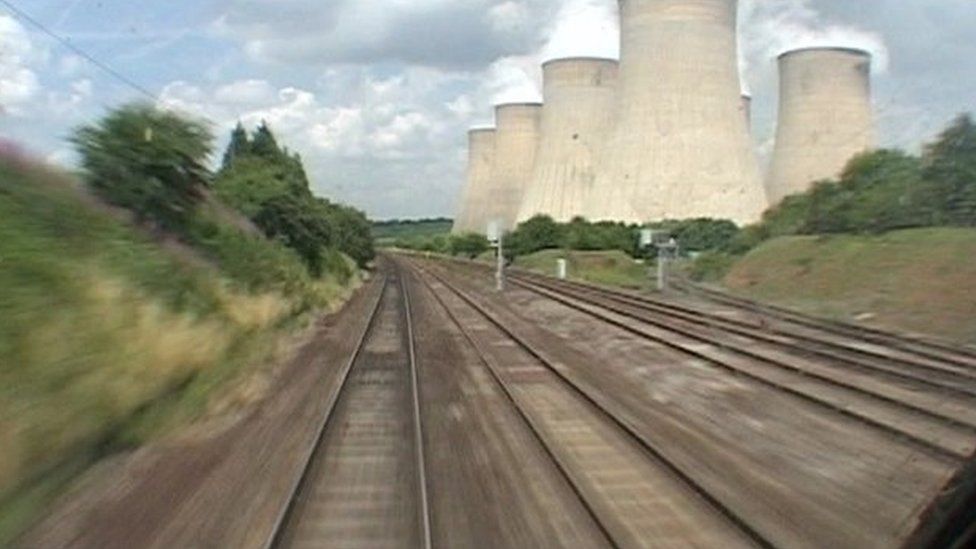Rocketing rail electrification costs unacceptable, say MPs
- Published

A £1.2bn hike in the cost of the Great Western Main Line rail electrification is "staggering and unacceptable", the Public Accounts Committee has said.
Upgrading the line between Maidenhead and Cardiff was set at £1.6bn in 2014 but is now estimated to cost £2.8bn.
MPs said it was not clear why and said Network Rail had "lost its grip" on large projects.
Network Rail said planning of the scheme had not been good enough but changes had been made to control costs.
The line from London to Oxford and Bristol Parkway was originally due to be electrified in 2016, to Cardiff in 2017 and Swansea in 2018.
In June the government "paused" the Midland Main Line and TransPennine route electrification schemes due to costs but said the Great Western Main Line scheme remained "a top priority".
Mark Carne of Network Rail says rising costs are a 'significant disappointment'
However, the Public Accounts Committee (PAC) heard in October that there was now no firm completion date and costs could reach £2.8bn.
Regulator the Office of Rail and Road (ORR), which calculated the £1.6bn estimate, had not been robust enough in scrutinising Network Rail's plans or ensuring it addressed risks, the PAC report said.
It added there was still "far too much uncertainty" on costs and timescales for the TransPennine and Midland Main Line projects, which have been pushed back into the 2020s.
Analysis
Dave Harvey, BBC West of England business correspondent
Electrifying Brunel's famous Great Western Railway was never going to be cheap or easy. Adding overhead electric gantries to the route through Bath, Box Tunnel and the West Country landscape has proved vastly more complex than anticipated.
Even when the project was first proposed in 2014, Network Rail's chief executive described the plans as "unrealistic". Since then, costs have spiralled and passengers still have no idea when electric trains will run.
Ironically, the new trains themselves are on schedule and on budget, raising the prospect of electric trains arriving with no track to run on.
Fortunately for the rail authorities, the new rolling stock is a hybrid, using diesel where the track is not electrified. That is now looking like a useful design feature.
Committee chairman Meg Hillier said: "Network Rail has lost its grip on managing large infrastructure projects.
"The result is a twofold blow to taxpayers: delays in the delivery of promised improvements and a vastly bigger bill for delivering them."
She questioned whether the ORR was "fit for purpose" and said five-year funding cycles should not be used for major projects.
'Overly ambitious'
An ORR spokesman said escalating costs and delays were "unacceptable" and agreed a review of its role was "appropriate" following changes to Network Rail's ownership and finances.
"We need to learn the lessons, and agree with PAC's recommendations that uncertainties in key projects need to be addressed differently."
A Network Rail spokesman said it was clear the industry had been "overly ambitious" about what could be achieved with the money available.
"Network Rail has successfully delivered over 5,000 projects over the past five years, but our understanding of how best to plan and deliver major new electrification schemes was not good enough.
"We have now made significant changes to the way we plan and deliver our investment programme, which will see schemes progress only once they are sufficiently developed that a reliable cost estimate can be established."
He added that electrifying the Great Western Main Line was "extremely complex" on an operational railway and trying to minimise disruption to "line-side" neighbours had increased costs.
- Published21 October 2015
- Published30 September 2015
- Published17 July 2015
- Published25 June 2015